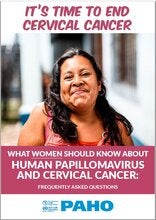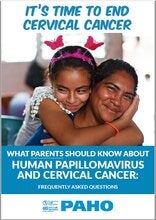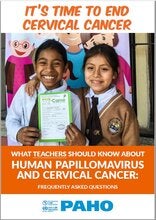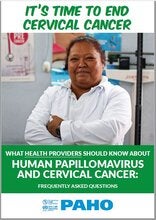Cervical cancer can be prevented.
The HPV vaccine and the screening and treatment of precancerous lesions are essential interventions to achieve this goal.
The success in getting women and girls access to vaccination and screening does not only depend on health programs. It is also necessary that the community gets involved by becoming informed and participating in the cervical cancer prevention efforts.
When talking about cervical cancer, many questions arise: How is it prevented? Can it be cured? Is the HPV vaccine effective? Is screening painful? In this section, you will find informative materials that will help you clarify your doubts and take better care of your health, as well as, that of your daughters and that of your community.











